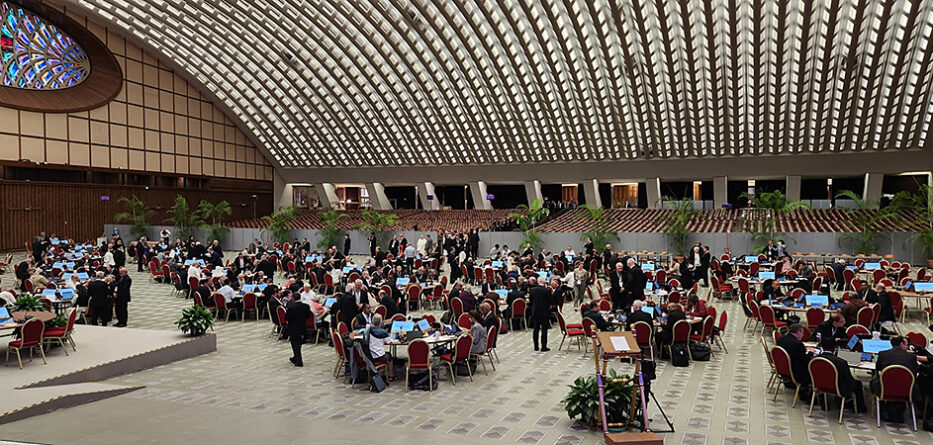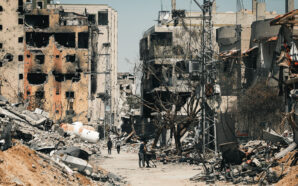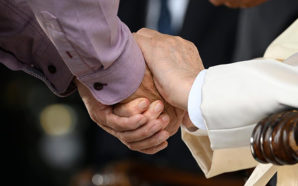The early days of discussions were an opportunity for the 364 members to get to know each other
The first steps have been taken in the month-long Synod assembly that’s being held at the Vatican to determine the future of the Catholic Church.
The 364 Synod fathers and mothers spent the initial three days of the October 4-29 gathering experimenting with the premises and procedures as they sat around 35 round tables in the large Paul VI Audience Hall. They also put into practice “conversation in the Spirit”, a method whose advantages the organizers never fail to point out because it gives everyone time to express themselves, alternating between speaking and silence.
During the first few hours, participants were a little disconcerted. Some praised the “incredible diversity” of the members. Others compared the layout of the round tables to that of a wedding banquet… or even a cabaret.
“Some came dragging their feet,” said one of the participants.
“Some of the bishops present had not participated in the synodal process in their own countries and came here as if they were being punished,” said another in agreement. “But it seems things have taken off. They understand.”
A spiritual experience
Synod organizers point to the friendly bonds forged between participants with opposing views. Others point out that the Synod is in every sense a human and spiritual experience, not a political game. Still others speak of the encounters fostered by the three-day spiritual retreat outside Rome before the proceedings began.
“You don’t feel any tension inside,” insisted the organizers.
In fact, that’s what the first three days of discussions were designed to do – create a state of mind summed up by the very first theme addressed: “For a synodal Church, an integral experience”.
“We didn’t talk about much that was divisive,” explained one Synod father.
In the large audience hall, where everything takes place behind closed doors, the group discussions are followed by plenary sessions, where the talks so far have tended to underline the importance of synodality.
“The foundations have been laid for what’s to come”
Archbishop Bruno Forte of Chieti (Italy), a well-regarded theologian who called for changes in doctrine during the 2015 Synod assembly on the family, and Cardinal Gerhard Müller, former prefect of the Dicastery for the Doctrine of the Faith and a conservative figure, set out their theological understanding of this concept on Friday. The first lay people, including women, also addressed everyone on Friday afternoon.
“The foundations have been laid for what’s to come,” said an enthusiast of the synodal process. “There will be difficult discussions and, under these conditions, we are ready to have them.”
When questioned, the participants all cited the same points: family issues, the place of women and lay participation.
“It’s very difficult to know what’s going to come out of this,” explained one of them, before continuing: “The most important part is yet to come.”
Reproduced with permission from La Croix International.








